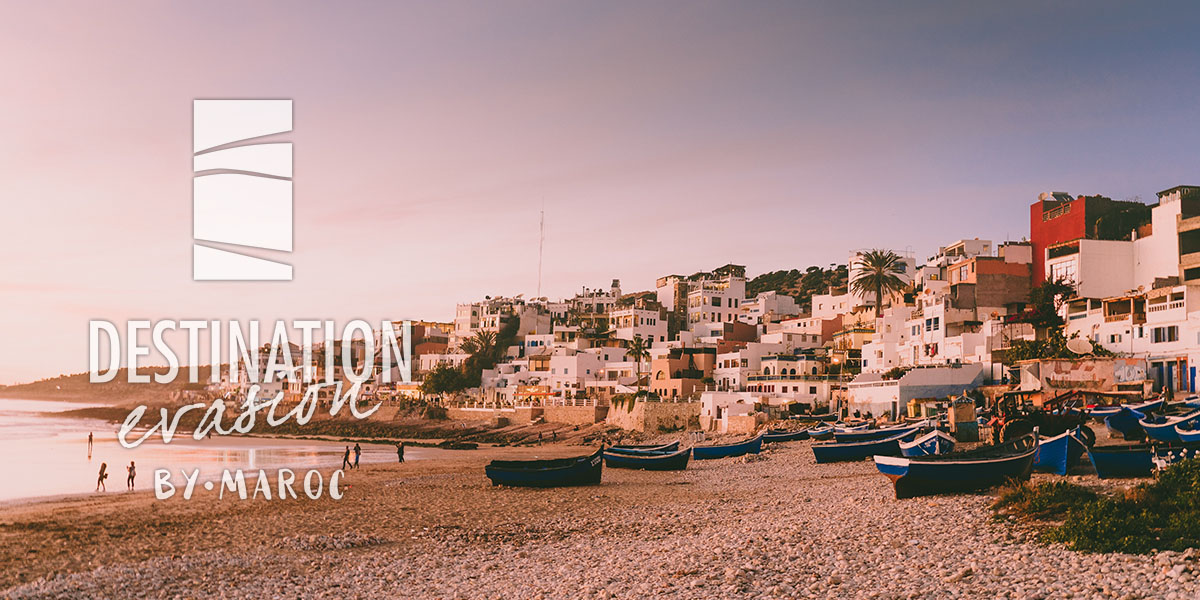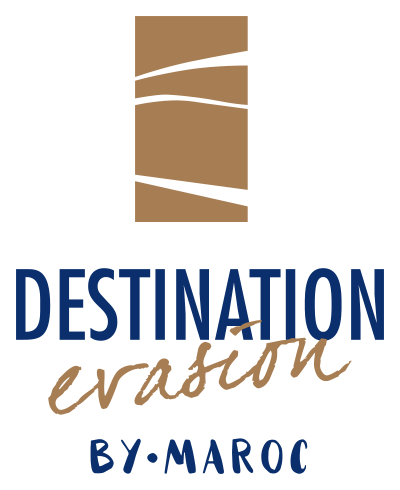
Currency
Moroccan Dirham (DH)
Exchange rate
€1 = 10.72 DH (Jan 2017). The Dirham generally fluctuates between 10.50 and 11.50 DH to €1. Please check the exchange rate before departing.
Offical country name
Kingdom of Morocco (Al Maghreb in Arabic)
Nature of the regime
Constitutional Monarchy
Head of State
Mohammed VI, Commander of the Faithful
Capital city
Rabat
Surface area
446,550 km2 (659,970 km2 including the Western Sahara)
Offical languages
Arabic and Tamazight
Other languages
Darija (Dialect of Arabic), Berber, French, Hassaniya
Religion
Islam 99 %.
Population
33,655,786 inhabitants (June 2016)
Urban Population
60.2% population density: 73.9 inhabitants/km2
Climate
The climate and seasons differ depending on the region. Along the Atlantic coast and Mediterranean, the high season is during the summer, roughly mid june to mid september. During this time foreigners as well as Moroccans visit to take advantage of the coastal fresh air. On the other hand, the other regions especially the south are deserted during summer due to the blistering heat (up to 50 °C) The high season for Marrakesh and the areas south of it are from mid September to mid June. If possible, it’s better to avoid visiting Morocco during the period of Ramadan. During this period, the country slows down and fiding places to eat and stay becomes more difficult.
Meals and Cuisine
Moroccan cuisine has taken on the best of many different influences including Berber cuisine, touches of Egyptian and Jewish cuisine, sweet flavours of Constantinople cuisine and some accents of Spanish and French cuisine. Moroccans are fine connoisseurs when it comes to food and a stay in Morocco doesn’t usually lead to weight loss!
Time zone
There is one hour of difference during the most part of the year (the exception is mostly during Ramadan). When it’s 12 o’clock in France, it’s 11 o’clock in Morocco. During Ramadan, the time difference can be 2 hours.
Internet
You will find cybercafes in most places. 4G sim cards are available too. However, most tourist accomodations are equipped with Wi-Fi. Telephone: All Moroccan numbers contain 10 digits with 0 as the first digit. This format has been in rotation since 2009. Numerous business cards and brochures have not yet been updated so please add 05 before a landline number and 06 before a mobile number. Using the telephone in Morocco: Dial 10 digits with 0 as the first digit. Using the telephone from outside Morocco to a Moroccan number: Dial 00 or +212 and then the 9 digits of the person you are reaching. Using the telephone from Morocco to another country: Dial 00 or the country dialling code plus the telephone number of the person you are reaching. Cost of using the telephone: You can find prepaid cards easily in the cities and large towns (20 – 300 DH) and phone booths accept them. You can buy a sim card from several operators (Maroc Telecom Jawal, Inwi or Méditel) for 30 DH and you top them up directly from your telephone. You can also find very good 4G offers.
Dos and Don’ts
In order to avoid misunderstandings and embarrassing situations, please make sure you adhere to local customs and etiquette. Here are some essential rules:
If you are visiting a city or town in the company of a guide, please offer him/her a cup of tea (if s/he hasn’t already taken the iniative). This moment will be the perfect opportunity to decide the intinerary. Certain guides have accords with vendors in the Medina, you can refuse to go around the boutiques.
When you have an invitation to share a meal with a traditional family, remove your shoes at the entrance, then wash your hands in the ewer which is presented before starting the meal (we rarely dry our hands). Use your right hand to take food from the plate that everyone is sharing, eat the part that is in front of you by holding it with three fingers. Avoid using your left hand as this is considered unclean as it is used to clean the body. Of special note, do not waste the bread as this is the most important part of the meal and you can potentially offend your host. At the end, leave a gift, even a modest one and don’t forget to send photos taken during the meal, to your host. This is all recommended for traditional families, it’s up to you to get a feeling of what is correct and appropriate.
When you meet a friend, take a few moments to exchange salutations. Avoid critisizing religion, the king or the functionality of the country in public or in front of people you don’t really know. Access to mosques and holy places are for the most part forbidden to non-muslims. Some exceptions: Hassan II Mosque in Casablanca, Mohammed V Mausoleum in Rabat, Moulay Ismail Mausoleum in Meknes, Moulay Ali Cherif Mausoleum in Rissani, Zaouia in Zagora. Do not refuse the first or the second cup of mint tea when it is offered to you, that would be considered impolite. You can politely refuse the third cup.
Avoid wearing provocative clothing outside (Even if in Marrakesh and other large towns women are more and more emancipated). In villages, women who smoke outside are looked upon badly. Conversely, in larger towns, nobody will bother you. Avoid drinking, eating and smoking during the day during the period of Ramadan. Morocco has had a slower pace of living for centuries, take this into account when planning activities and meetings with people. It’s useless to insist on a quick service for anything, it is not in the habits of the country. Leave the stress of timekeeping when getting off the plane.
Supervision
During the entirety of your trip, one of our agents will be reachable by telephone in order to assist you should you need guides, drivers or hosts.
Formalities
You should have your passport (ID cards are not enough) in order to enter the Moroccan territory. On the other hand, most European citizens do not need a visa, an entry stamp will be placed in your passprt upon entry at the airport. The maximum stay is 3 months. If you overstay, a fine will be issued to you.
Travel Visas
Most European citizens do not require a visa to enter Morocco but please check before booking.
Vaccinations
There are no mandatory vaccinations in Morocco.
Land transport
Minibus transfers or taxis will be organised depending on the group size and type of trip.
Water
Water can be bought in the villages you come across or the guide will indicate water sources where you can fill up your bottles. Should you be sensitive to source water then it is advised that you use purifying tablets.
Carrying your personal affairs
The backs of mules and camels are used when hiking or climbing with the Meharee.
Your equipment
Don’t bring too many personal affairs! Travel lightly! A backpack ideal for hiking with a capacity of around 35 litres is advised, it will be useful for when you travel around during the day. It will also be useful as hand luggage when you are carrying fragile, expensive or important items during trips, such as your camera or medecine etc. It will be stowed away during flights (hand luggage weight is limited to 10kg per person). A large travel bag or suitcase no more than 15/20kg should hold the rest of your things. You will find it every evening and will be transported by camel.
Clothing
• a hat or baseball cap
• t-shirts (1 for every 2/3 days of walking). Avoid cotton as it takes a long time to dry off, bring short sleeve breathable t-shirts
• Sunglasses
• Warm clothing or a jacket for the evening
• Foresee a rain jacket
• 1 pair of trousers suitable for walking and/or 1 pair of bermuda shorts
• 1 pair of comfortable trousers for the evening
• a light wind/rain proof jacket
• Underwear
• Socks (1 pair for 2/3 days of walking)
• ankle supporting walking shoes
• 1 pair of sandals and/or relaxed footwear for the evening
• 1 microfibre towel, light and quick drying
The list of recommended clothing should be adapted to the season
Material
• water bottle
• if hiking, 1 sleeping bag
• 1 small watertight zip bag for keeping money
• toiletries
• medecine/disinfectant for blisters
• sunscreen and chapstick
If you are taking prescribed medecine, it is strongly advised that you place this in your hand luggage and keep it with you at all times. The correct quantity for the entire duration for your visit should be foreseen.
